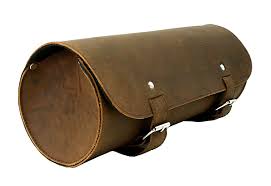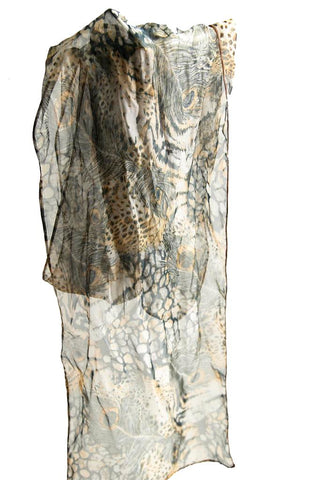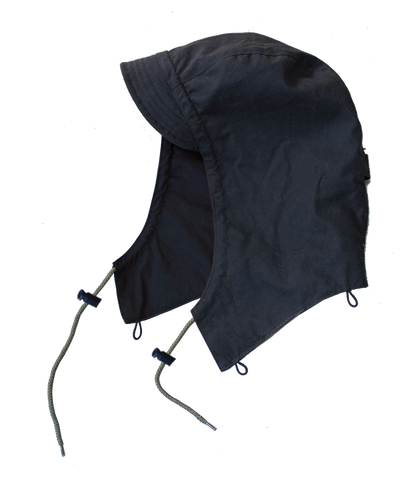MicroWax Reproofing Creme - 15.2oz
$34.99 - Sold Out
-
Even the toughest need a little TLC sometimes.
Kakadu oilskins are built to last, capable of enduring all manner of harsh weather conditions and tasks. A whack of MicroWax Reproofing Cream from time to time will keep your Kakadu garment good as new.
For touch-up jobs - on seams, elbows and other friction points - all that needs to be done is to rub some of the MicroWax into the affected area with a clean rag until it's covered, then hang to dry in a well-ventilated area out of direct sunlight. For the whole garment, the level of wear will dictate how often you'll need to reproof, but if you're really pushing it to the limits then we recommend every two years. Unless you have a thing for car detailing, your best bet is to stand the whole can of MicroWax in hot water. When liquid, paint the entire garment with a clean brush until it is well coated, especially the seams. Hang the same way you would for touch-up jobs.
And whilst your Kakadu is drying you can catch up on a little R&R yourself.
Size: 420g / 14.5oz. -
FAQS:
What is Microwax reproofing cream? The art is in the blending of hard and soft waxes that allow the garment to be pliable enough without cracking, stop wind and rain without leaking, but firm enough to keep from migrating to the bottom of the garment. This blending is the reason that our MicroWax rarely transfers onto other surfaces from your garment.
Why do people still use oilcloth (waxed cotton) garments when there are so many other good non oilcloth products available on the market?This is easy to answer, because they work. They shed water, block wind and will keep you warm. Garments made from oilcloth are usually designed for a specific purpose in mind so they are functional. The cotton canvas fabric is tough, and they are low maintenance and can be easily repaired if torn.
Is it easy for waxed garments to catch fire? It is about the same as a denim jacket - the flash point is rated at 180℃ (355℉), but like all clothing we highly recommend that you keep back from naked flames etc.
When do you need to reproof your garment? As a general rule and depending on the amount of use, your oilskin garment may require reproofing after the first few years at some on the most worked areas. Examples of these are shoulders, elbow and crease area, rear-end etc. To apply, just follow the instructions on the tin which is real simple.
Can you wash an oilskin garment?We do not recommend washing for the simple reason that hot water will solidify and remove the wax out of the garment. Both bleaches and strong detergents will also deplete the waxes from a garment. However, providing you follow some basic rules you can give your oilcloth garment a quick wash.
This is how: Use warm water 30-40℃ (85-105℉) and use a very mild detergent on a short washing circle. Be sure you give it a good rinse in clean water after you finish washing, then hang to dry in a well-ventilated area.
Self-preservation notice - You may need to wash down the inside of your washing machine with hot water and some bleach or strong detergent after you have washed your oilcloth garment. There will be a residue of wax and dirt that would have been removed from the garment during the washing process (we highly recommend that you do all this while the missus is away as they do tend to get excited when they see what was left in their washing machine after you have washed an waxed garment in it.)
Recoating your oilskin garment after wash - You may find that the wax on your oilcloth garment is patchy after the wash. A quick remedy to this is to apply the reproofing cream generously to those dry looking parts then throw the garment into the clothes dryer at the highest temperature for about 10 minutes. (again, we highly recommend that the missus is away when you do this as she may not see benefits in you using her clothes dryer for this). If you are worried about getting caught then throw the garment into a cotton pillow slip (not one of her best ones)then place it into the clothes dryer again at the highest temperature for about 10 minutes. This way no MicroWax ends up in the dryer.
FYI, The temperature used when applying the MicroWax to our fabric is 130℃ (265℉), so a hot dryer works well.
Repairing a tear to your oilcloth garment - The beauty of this type of garment is that it is low maintenance. It's made from tough, tightly woven canvas and if by the odd chance that you do get it caught on something and rip it, then, just sew it back up, rub some MicroWax into and around the sewn area and you are right to go again.
















